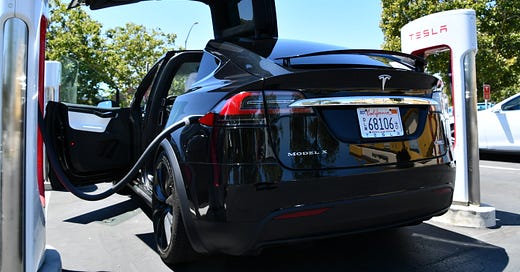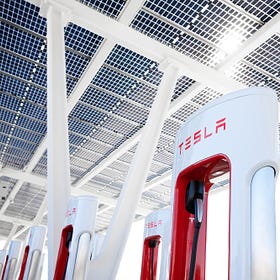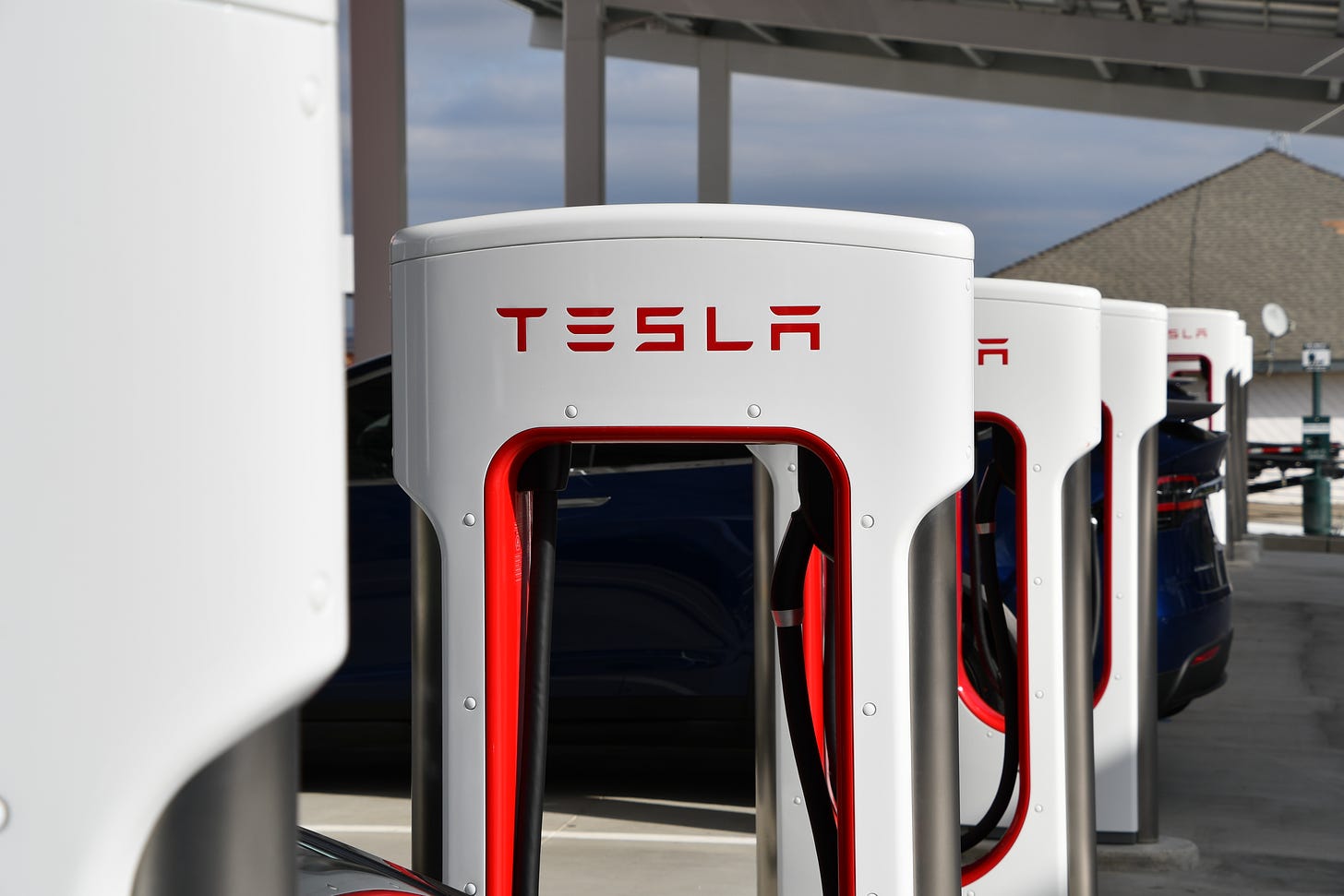Tesla Triumphs: GM Joins Ford in Embrace of Elon's Supercharger Network
General Motors just sealed Tesla's charger as the North American standard
Wow. It made too much sense not to, but I didn’t think it would happen this quickly.
General Motors is following in Ford's footsteps and adopting the Tesla charging plug for its future electric vehicles. In a Twitter Spaces conversation with Elon Musk, GM CEO Mary Barra endorsed the North American Charging Standard (NACS) — the official name for the Tesla plug — asserting that it is the superior charger and should be recognized as the standard EV connector in North America.
Why Ford's Embrace of Tesla's Plug is a Huge Win for Consumers
In the electrifying world of EVs, change sparks both innovation and controversy. Ford's decision to adopt Tesla's NACS charging plug in its future EVs has ignited a heated debate, while the potential for innovation remains to be seen. Tim Stevens, a fellow car journalist whom I greatly respect recently wrote disapprovingly on his own …
With Ford and GM — two of America's largest EV manufacturers — joining Tesla in adopting NACS, it seems likely that other industry players will soon abandon competing plugs, such as the J-1772 and CCS chargers currently used in Ford and GM EVs (and basically every other EV sold in America today).
The adoption of the NACS by Ford and GM is a huge win for Tesla and its Supercharger network, which was initially exclusive to Tesla owners. Recently, Tesla had started to open some of its stations to other EVs in both Europe and the US to get access to additional government funding, but now the entire Supercharger network will reach hundreds of thousands of new EV users.
Tesla’s Supercharger network was already the biggest and most popular EV fast charging system in the country, but with the addition of Ford and GM to the fold, it will likely see even faster expansion and investment as the pool of customers just grew dramatically.
In 2014, Tesla's opened its patents to other automakers, and the fruits of that decision are finally coming to pass. GM and Ford’s decision to adopt the NACS plug and the Supercharger network is a major step towards standardizing EV charging across the industry. This is a game-changer for all EV buyers and could potentially be a devastating blow to charging network operators like Blink, ChargePoint, and Electrify America, who operate thousands of chargers with plugs that may soon become obsolete.
When Tesla opened its patents, I wrote in WIRED:
If other car companies adopt some of Tesla's technology to develop long-range electric cars, that's nothing but good for the company.
[…]
At the end of the day, the biggest risk for Musk isn't that BMW or Toyota will steal his technology. It's that the big automakers might not be interested in electric cars enough to bother building them at all.
It took almost a decade, but the controversial move finally paid off. In the end, this is a win for GM, Tesla, and Ford customers, as GM EV owners will have access to Tesla's extensive Supercharger network in addition to existing chargers, and the added customers will only fuel investment in the network.
As this situation unfolds, I find myself wondering how long the Supercharger network should even remain a part of Tesla. Does it make sense to spin it off into a separate company and attract investments from other automakers? And what implications does this have for other company-owned charging networks, such as those previously announced by Mercedes-Benz and Rivian?
Let me know your thoughts in the comments.







